10 Best Field Asset Management Software for Service Teams in 2025 (With Tracking Features)
Managing assets in a factory is one thing — managing them in the field is another. OEMs and service providers often juggle hundreds of machines, tools, and spare parts across customer sites. Without the right system, assets get lost, servicing is delayed, and downtime costs spiral.
That’s where field asset management software comes in. Also called asset management software for field service, these tools combine asset tracking, maintenance, and field service workflows into one platform.
In this guide, we compare the 10 best asset management software for field services in 2025, helping you find the right fit for your service teams.
Why Asset Management Matters for Field Services
Field service teams don’t just need scheduling — they need visibility into every asset they service or carry.
Without asset tracking, OEMs risk:
- Lost tools and spare parts.
- Missed warranties and compliance issues.
- Reactive instead of preventive maintenance.
The right asset management software for field service links equipment data with service workflows. That means fewer delays, reduced downtime, and improved customer satisfaction.
Explore how Makula Asset Hub helps OEMs centralize equipment data across service networks.
Field Service Asset Tracking: Why It’s Essential
Field service asset tracking ensures that teams know where every tool, part, and machine is — and how it’s performing.
Examples include:
- Knowing which spare part is in which van.
- Linking equipment serial numbers to customer sites.
- Logging service history in real time via mobile apps.
Modern field service software with asset tracking allows technicians to scan barcodes, pull up service manuals, and close work orders instantly — cutting downtime and avoiding costly errors.
Learn how Makula Field Service enables real-time tracking and technician productivity.
Top 10 Best Asset Management Software for Field Services in 2025
Quick comparison table
Here’s our expert comparison of the leading platforms.
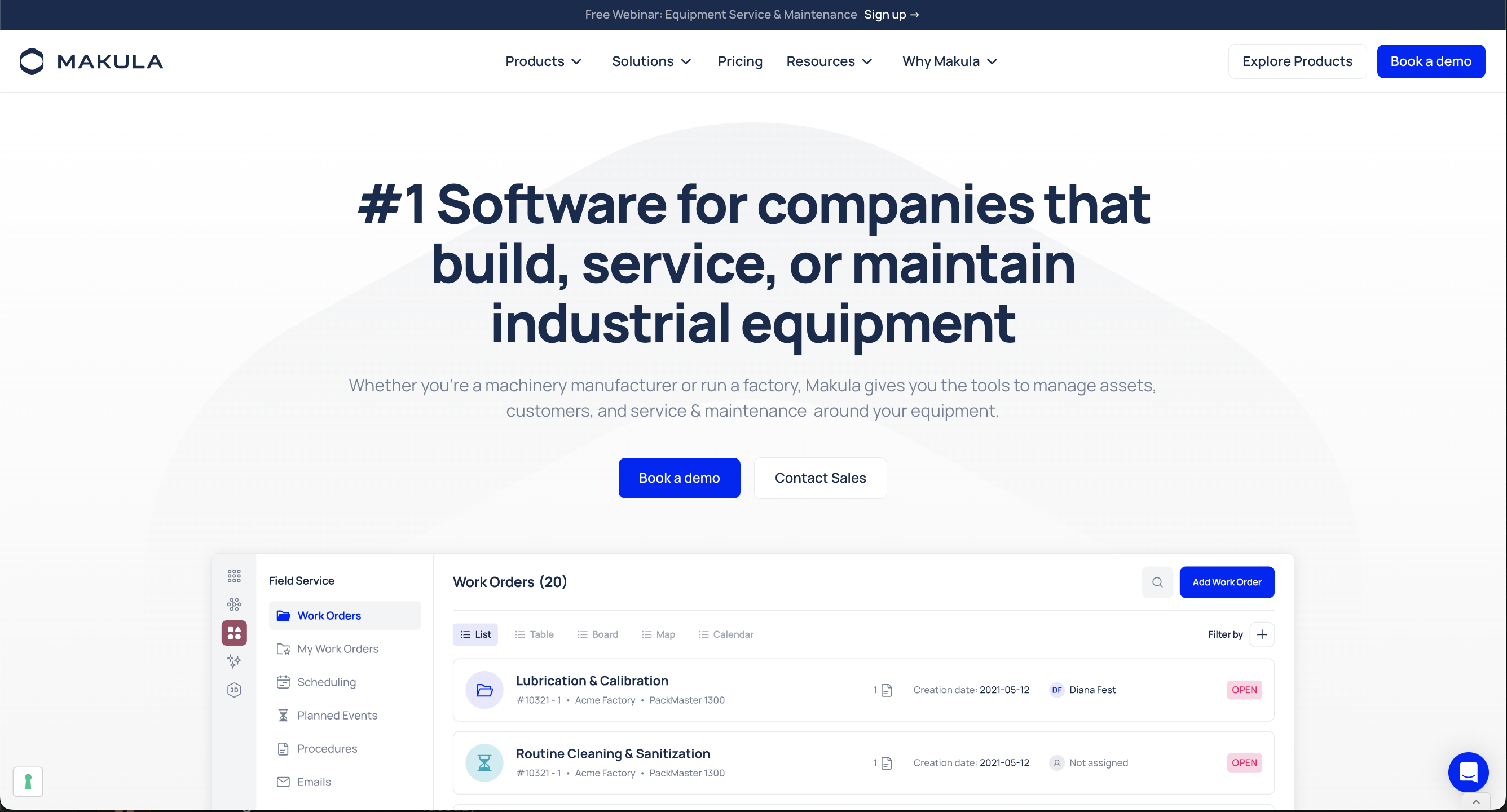
1. Makula
Makula is built for OEMs and industrial field service teams that need more than generic FSM or CMMS solutions. It unifies asset tracking, service management, and AI-powered insights into one platform.
Best For: OEMs, manufacturing field operations, and industrial service networks.
Asset Tracking Features:
- Full lifecycle tracking of machines, tools, and installed base.
- 3D Stream for visualising assets with manuals and service history.
- Van inventory management to avoid missing parts on-site.
- IoT/AI triggers for preventive maintenance and downtime reduction.
Pros:
- End-to-end suite: FSM + CMMS + Asset Hub.
- Tailored to OEM aftersales and asset-heavy industries.
- Strong AI features (diagnostics, automated reporting).
- Customer Portal improves aftersales engagement.
Cons:
- Best fit for mid-to-large enterprises (may be too feature-rich for very small teams).
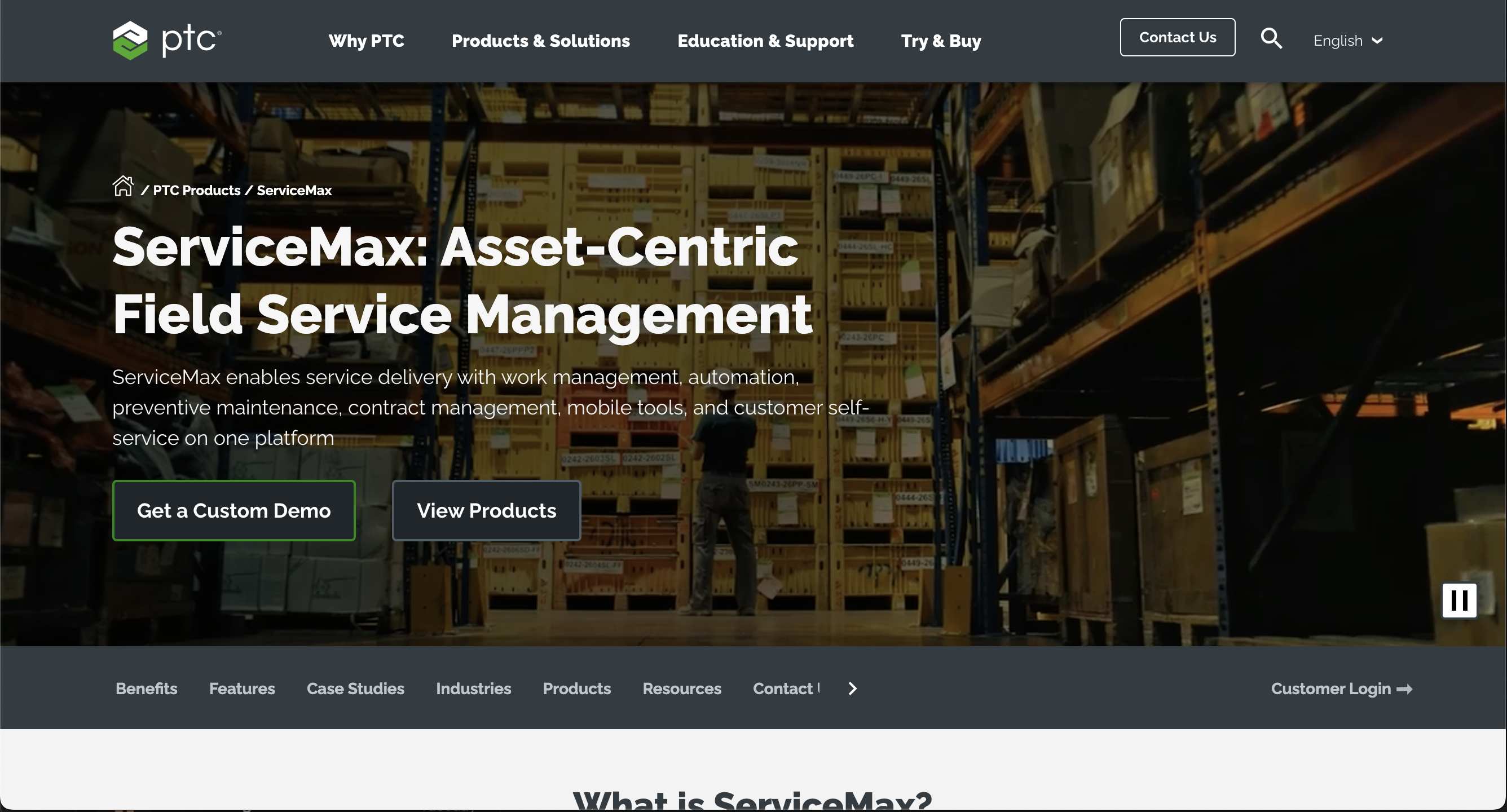
2. ServiceMax
ServiceMax is designed for asset-centric enterprises in utilities, aviation, and energy. Its depth lies in linking engineering data with field operations.
Best For: Large enterprises with mission-critical assets.
Asset Tracking Features:
- Digital twin support for assets.
- Serial number and warranty lifecycle tracking.
- PLM system integration for engineering visibility.
Pros:
- Very strong for regulated, asset-intensive industries.
- Enterprise-ready with deep integrations.
- Great for managing long-lifecycle equipment.
Cons:
- Complex and costly to implement.
- Requires dedicated IT and system integrators.
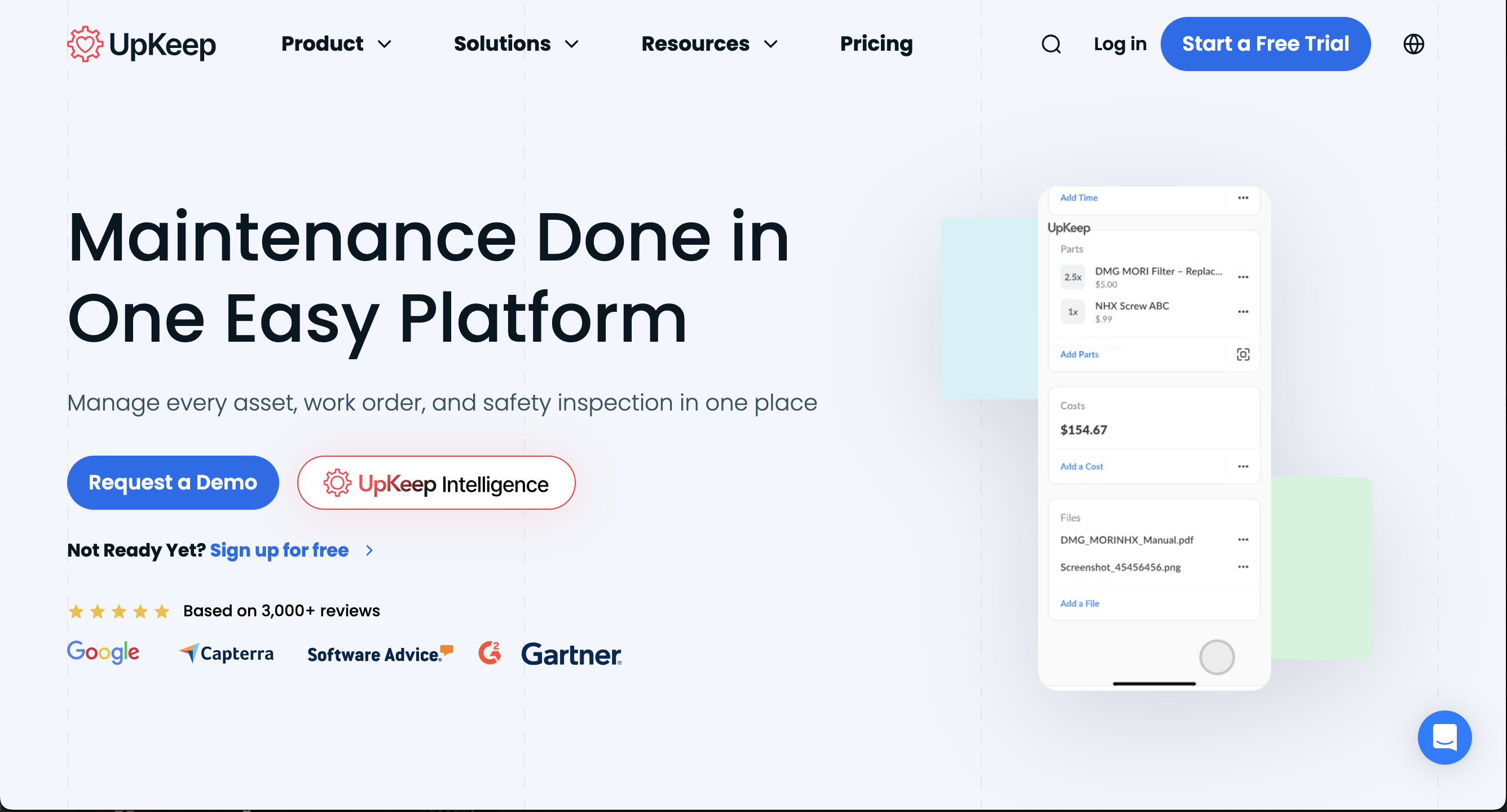
3. UpKeep
UpKeep is a mobile-first CMMS aimed at small to mid-sized teams that want simplicity and quick adoption.
Best For: SMB service providers, HVAC, facilities teams.
Asset Tracking Features:
- Barcode and QR code asset scanning.
- Offline mode for technicians.
- Work order-linked asset history.
Pros:
- Intuitive and easy to use.
- Fast setup, mobile-ready.
- Strong adoption among small teams.
Cons:
- Limited enterprise-level functionality.
- Best for internal teams, less for OEMs managing customers.
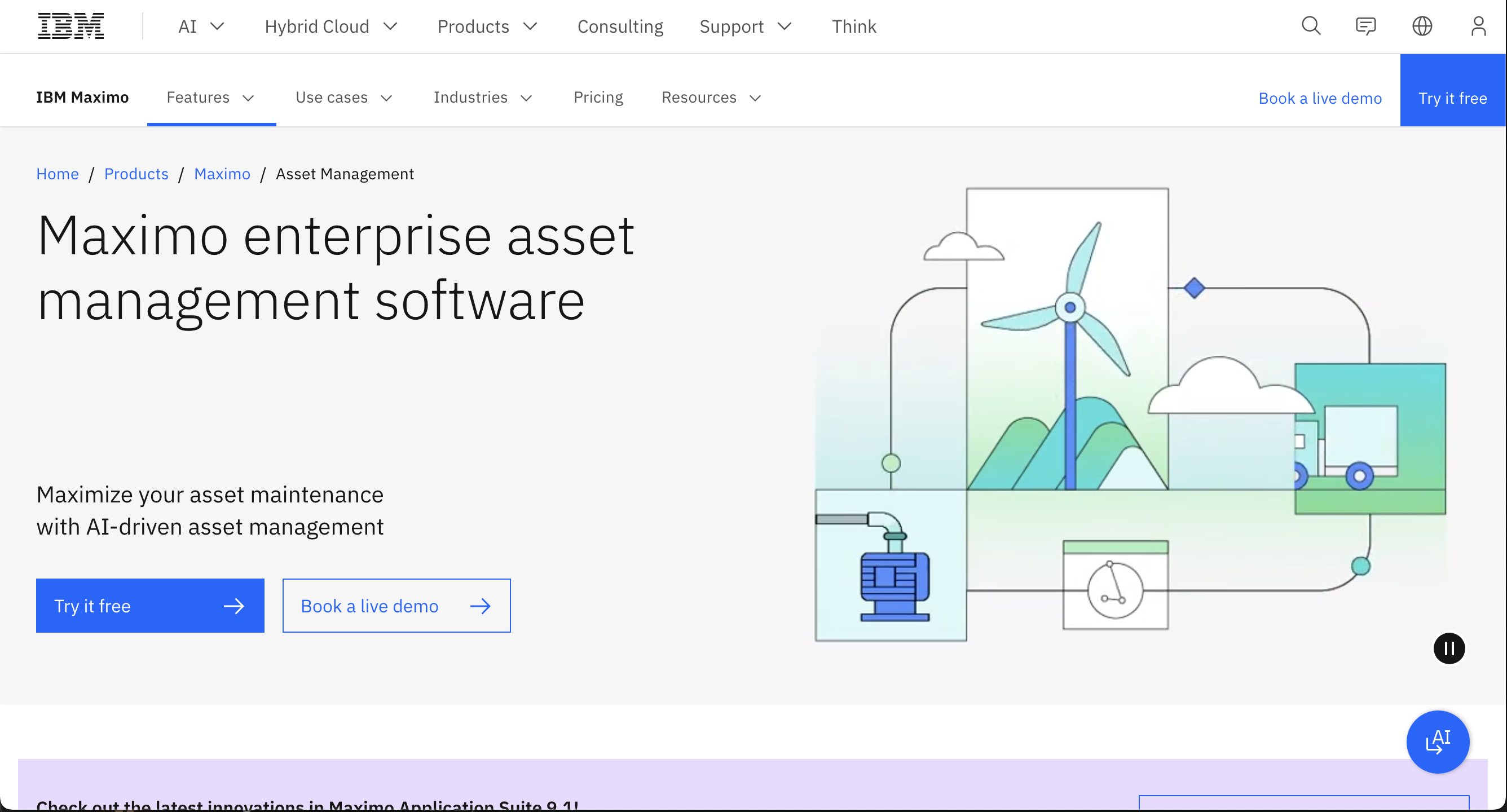
4. IBM Maximo
IBM Maximo is one of the most powerful Enterprise Asset Management (EAM) platforms available. It excels at complex, asset-heavy operations.
Best For: Oil & gas, energy, transportation, and utilities.
Asset Tracking Features:
- IoT integration for predictive maintenance.
- Mobile inspections and AI recommendations.
- AR-based visual asset inspections.
Pros:
- Very feature-rich and flexible.
- Strong analytics and predictive insights.
- Supports very large, complex operations.
Cons:
- Steep learning curve.
- Requires significant IT support.

5. Fiix
Fiix balances usability with advanced analytics, making it a modern CMMS option with strong integration capabilities.
Best For: Data-driven manufacturing and service teams.
Asset Tracking Features:
- Usage-based maintenance triggers.
- Asset health dashboards.
- Cloud-native API integrations.
Pros:
- Easy to use but still powerful.
- Excellent analytics and reporting.
- Flexible integrations with IoT and ERP.
Cons:
- Requires some setup for full capabilities.
- Mid-market focus — may not scale for the largest enterprises.
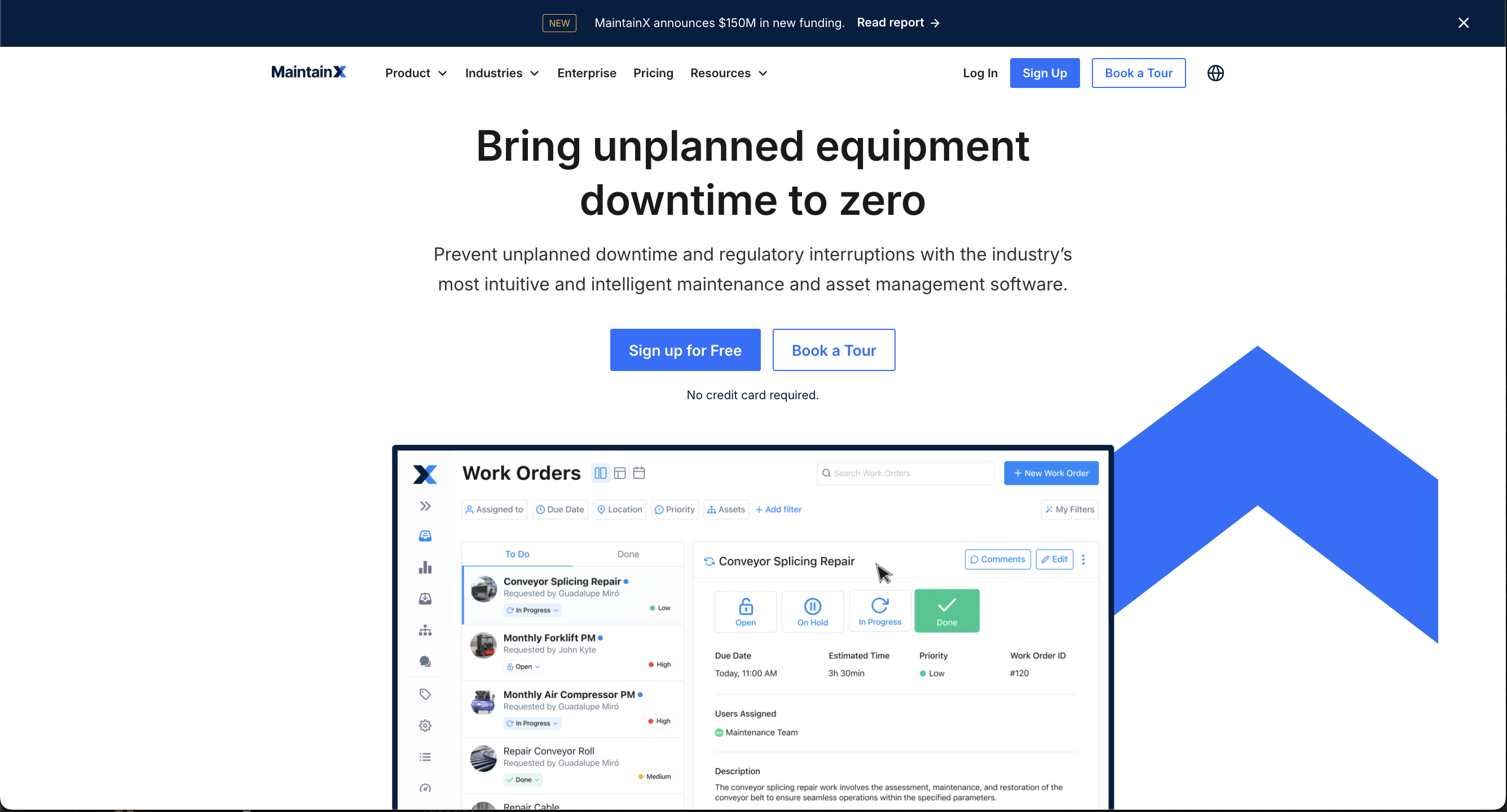
6. MaintainX
MaintainX is built for simplicity and speed. It digitises checklists and work orders, making it a popular choice for teams transitioning off paper.
Best For: SMBs and facilities teams seeking quick wins.
Asset Tracking Features:
- Checklist-based asset logging.
- Mobile-first with push notifications.
- Simple document storage for assets.
Pros:
- Very easy to adopt.
- Mobile-friendly, fast setup.
- Ideal for smaller service providers.
Cons:
- Limited advanced asset features.
- Less suited for enterprise-scale operations.\

7. Asset Panda
Asset Panda focuses on flexible asset tracking, especially for distributed service teams.
Best For: Teams needing configurable, mobile-first tracking.
Asset Tracking Features:
- Barcode scanning and audit-ready logs.
- Cloud-based with unlimited configuration.
- Custom asset fields for industry-specific needs.
Pros:
- Highly configurable.
- Strong mobile app.
- Good reporting tools.
Cons:
- Setup can be complex without admin support.
- Not as strong for maintenance workflows.
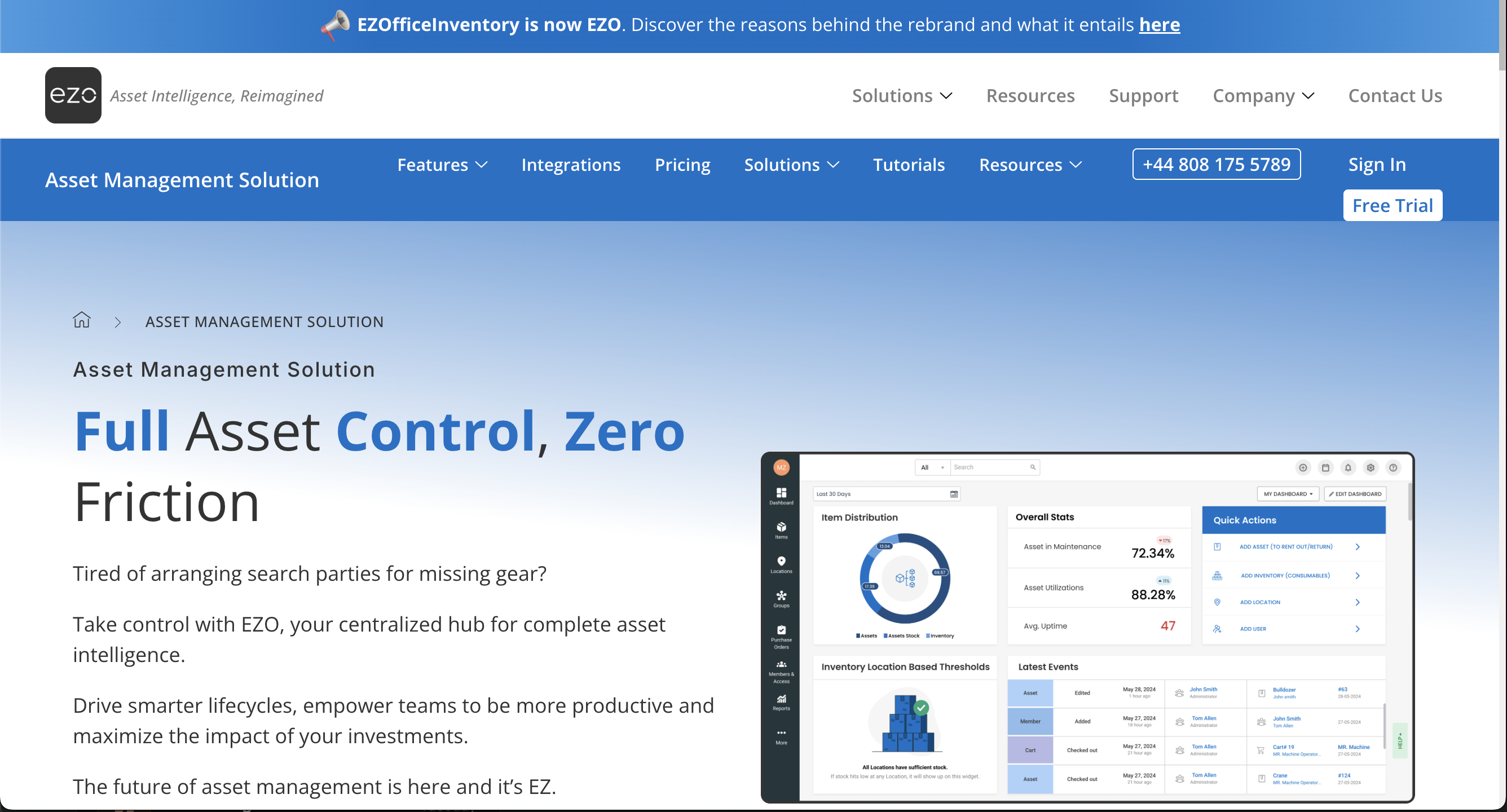
8. EZOfficeInventory
EZOfficeInventory is designed for teams managing tools, machinery, or rental assets in the field.
Best For: Construction, rental, and equipment-heavy service industries.
Asset Tracking Features:
- QR code and RFID support.
- GPS tracking for field tools.
- Check-in/check-out workflows.
Pros:
- Great for equipment-heavy use cases.
- GPS tracking for location visibility.
- Scales well across multiple sites.
Cons:
- Can be overwhelming for very small teams.
- More focused on tracking than full maintenance.
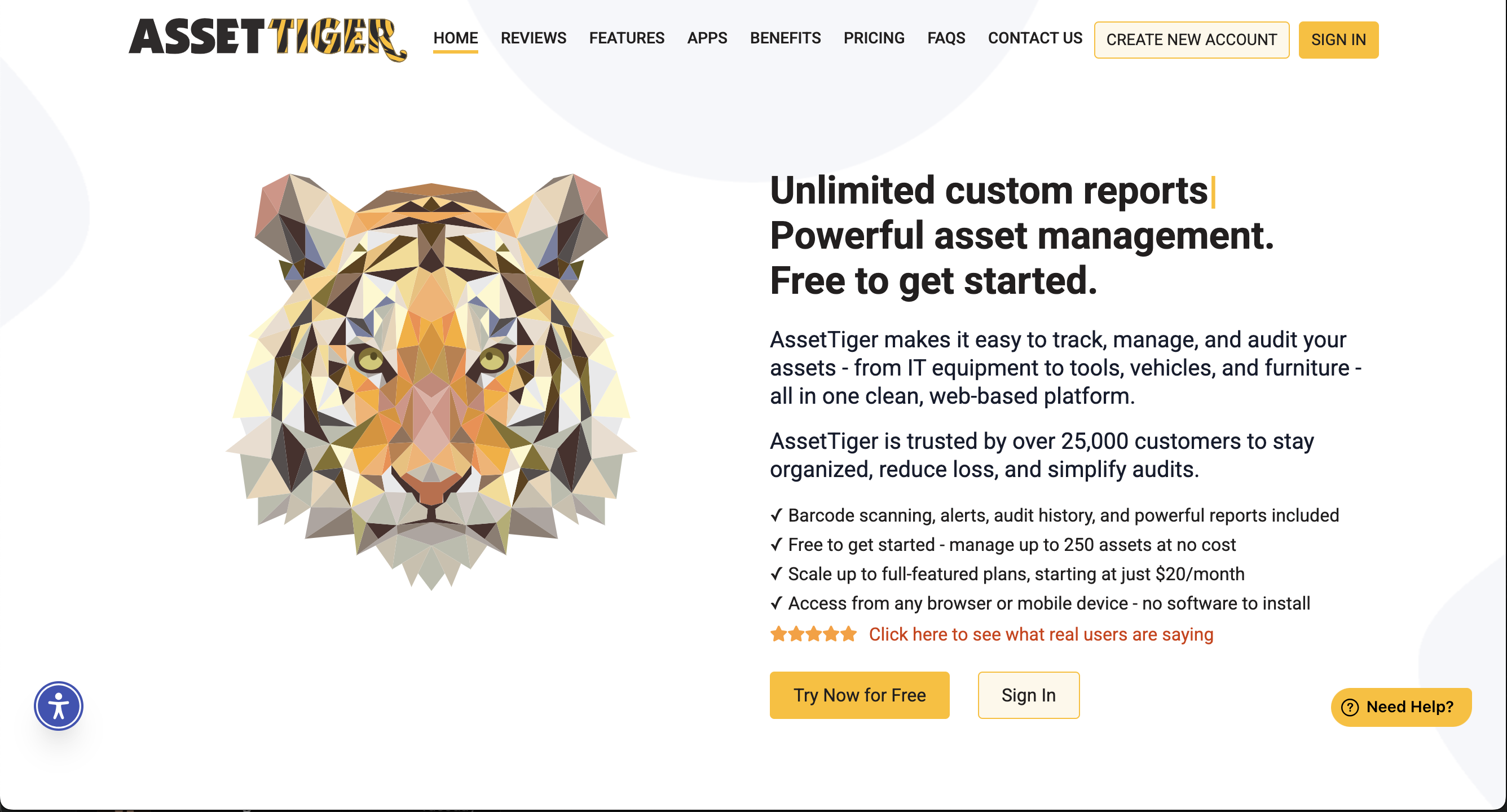
9. AssetTiger
AssetTiger is a budget-friendly solution that still offers solid asset tracking features.
Best For: SMBs with limited budgets.
Asset Tracking Features:
- Maintenance reminders.
- Depreciation tracking.
- Unlimited users included.
Pros:
- Affordable with strong core features.
- Cloud-based, easy to deploy.
- Suitable for teams that need wide access.
Cons:
- Limited advanced functionality.
- Not built for large enterprises.

10. Infor EAM (Hexagon EAM)
Infor EAM, now under Hexagon, is a robust enterprise-grade platform that supports predictive insights and field asset tracking.
Best For: Large-scale enterprises in utilities, transport, and manufacturing.
Asset Tracking Features:
- Predictive maintenance tools.
- Mobile inspections.
- Strong compliance management.
Pros:
- Very comprehensive and flexible.
- Designed for highly complex industries.
- Scales across large operations.
Cons:
- Heavy enterprise focus, not SMB-friendly.
- Requires resources for configuration.



